Irish Language Act: Laws not threatening says Welsh commissioner
- Published
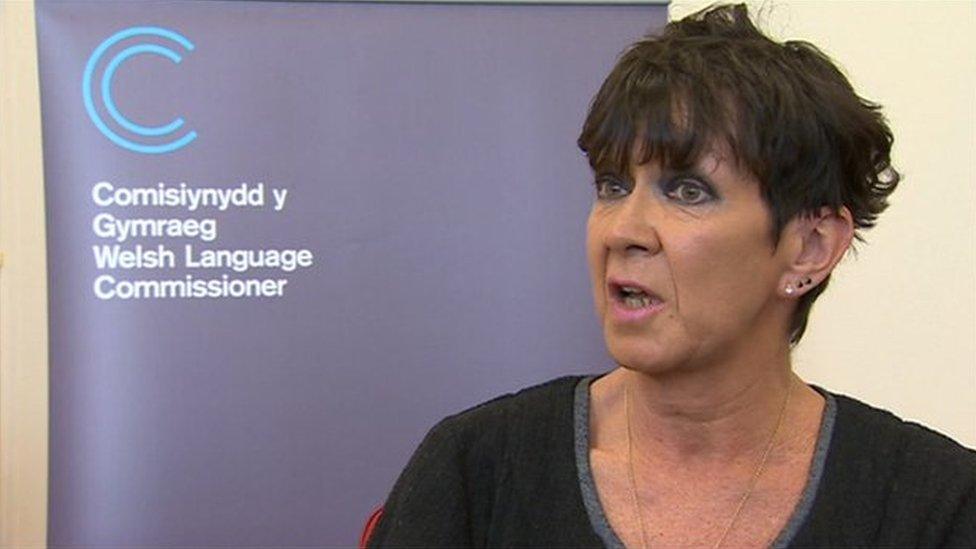
Meri Huws became the first Welsh Language Commissioner in October 2011
Language laws are not "threatening" but strengthen communities, according to the Welsh language commissioner.
Meri Huws was speaking in Belfast at the launch of a report into how local councils treat the Irish language in Northern Ireland.
Appointed in 2012, Ms Huws was the first language commissioner in Wales.
"Nobody will be disempowered by this, everybody over time will become stronger and empowered," she told BBC News NI.
The commissioner promotes the Welsh language, protects the rights of people to use it and polices the standards required of public sector bodies in their use of Welsh.
Welsh has official status alongside English in Wales, and the government there has set a target of having a million Welsh speakers by 2050.
The population of Wales is currently around three million.
However, the creation of an Irish language act in Northern Ireland has been contentious.
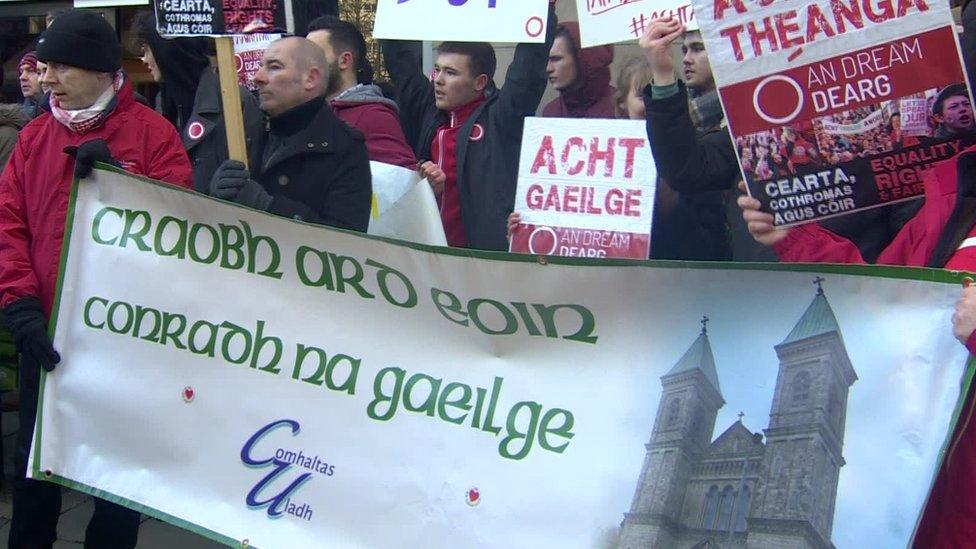
There have been calls for an Irish language act in Northern Ireland
DUP leader Arlene Foster has said there will be no standalone act and UUP leader Robin Swann has also previously said there is no need for an Irish language act.
However, other parties have supported calls for one.
Ms Huws said the creation and implementation of language legislation was a "journey".
"Bilingualism is a norm across the world and it's not threatening," she said.
"We've been on that journey for many, many decades in Wales and it'll continue."
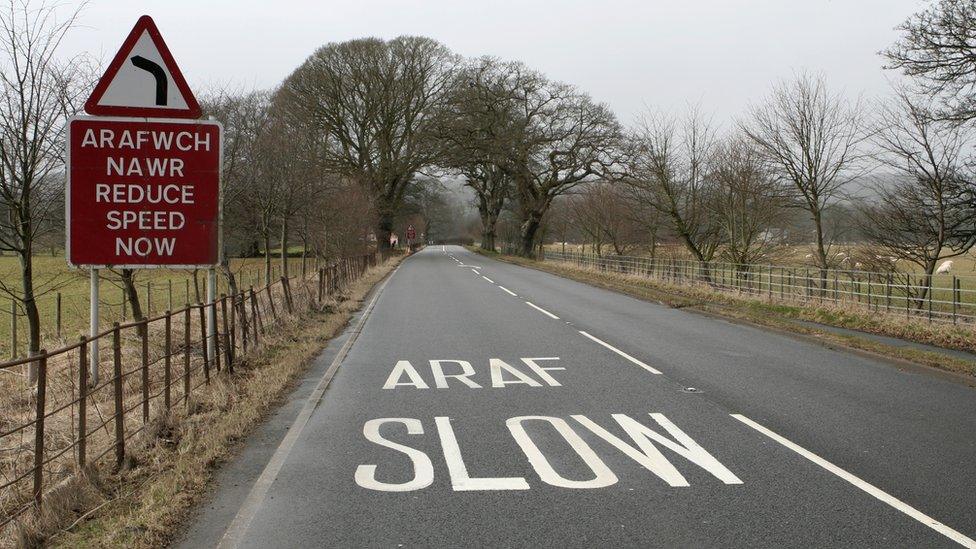
Welsh language legislation in Wales means visible bilingualism
"By now we've had four or five pieces of legislation over the 20th Century and this century in Wales."
"Over time - and it is step by step - attitudes have changed and it has strengthened the communities in Wales."
Ms Huws said the Welsh language was a part of everyday life in Wales, but not everyone had originally welcomed legislation to protect and promote it there.
"People have been quite concerned that this will disable them, it won't allow them to be employed etc," she said.
"Rather than saying that's rubbish, it's actually about engaging and talking to people and trying to explain why this is a norm."
The commissioner was speaking at the launch of research from Conradh na Gaeilge and the Committee on the Administration of Justice (CAJ) on how Northern Ireland's 11 local councils are complying with their statutory obligations in respect of the Irish language.
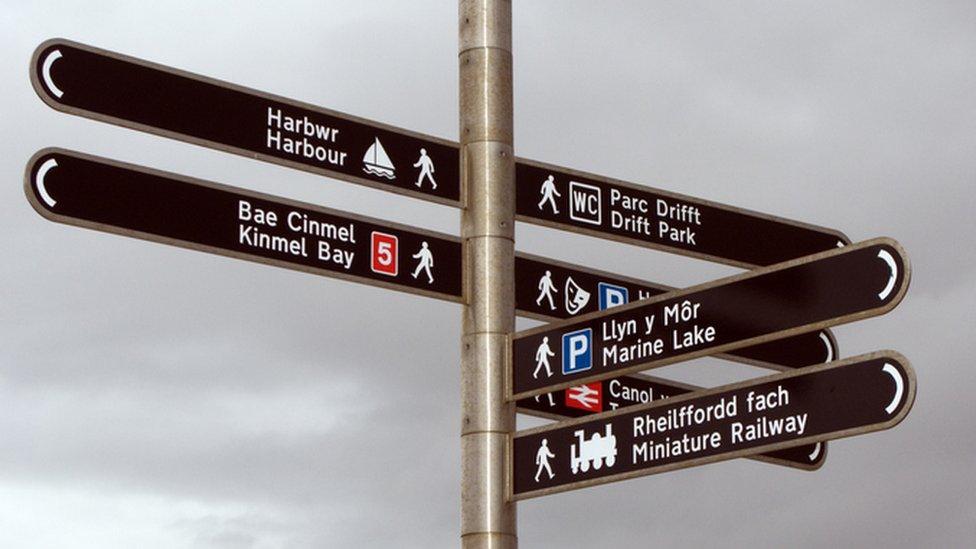
The latest figures show a rise in people able to speak Welsh
A number of agreements including the European Charter for Regional and Minority Languages (ECRML) - which the UK government ratified in 2001 - outline statutory measures for the protection and promotion of languages like Irish and Ulster-Scots.
Local councils have authority over things like bilingual street signs, support for Irish language cultural activities and translation services.
However, the research suggests that council provision of those services is uneven.
'Significant gaps'
While some of the 11 councils were fulfilling some of their obligations under the ECRML, the report said that some had no Irish language policy and had not taken steps to promote tolerance and understanding of the language.
Some did not give any information to the researchers on what services they made available through the Irish language.
Ciarán Mac Giolla Bhéin, from Conradh na Gaeilge, said there were significant gaps in provision across several councils.
"It is unfair in our view that if you're living in Belfast you receive some services through Irish - you have an Irish language officer and a language diversity policy - but if you live in Glengormley you have none of those things," he said.
"When you're travelling across the council areas here you will see maybe a proliferation of bilingual signage in some council areas and you go across to the next and there is next to none.
"What we would like is a move towards a uniform approach," he added.
'Game-changer'
"We would hope that councils will look at this as an aid or a guide for them to use to start to make progress in terms of meeting the obligations that are already on them with regard to the language."
Mr Mac Giolla Bhéin also said that the debate around an Irish language act still needed a "resolution".
"An Irish language act would be a game-changer," he said.
"If the parties were to come back tomorrow again and sit round a table to try to flesh out a deal, number one or maybe number two on the agenda behind Brexit would be the Irish language act, so it's still very much there."
- Published1 February 2019
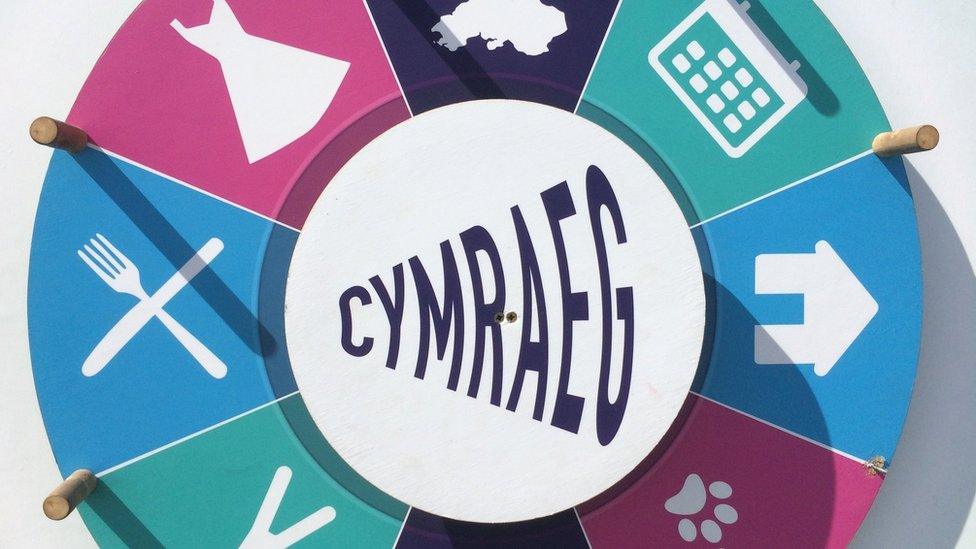
- Published13 February 2018
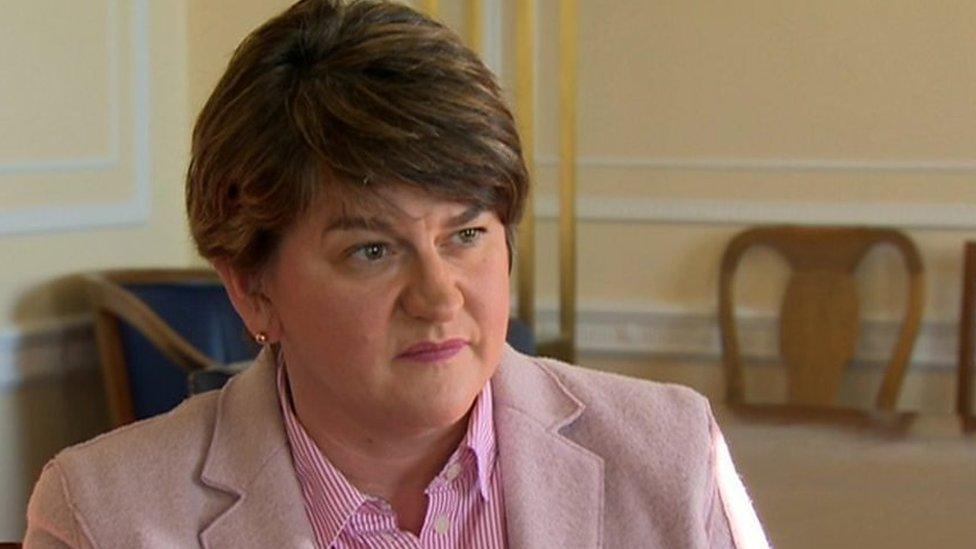
- Published30 August 2017
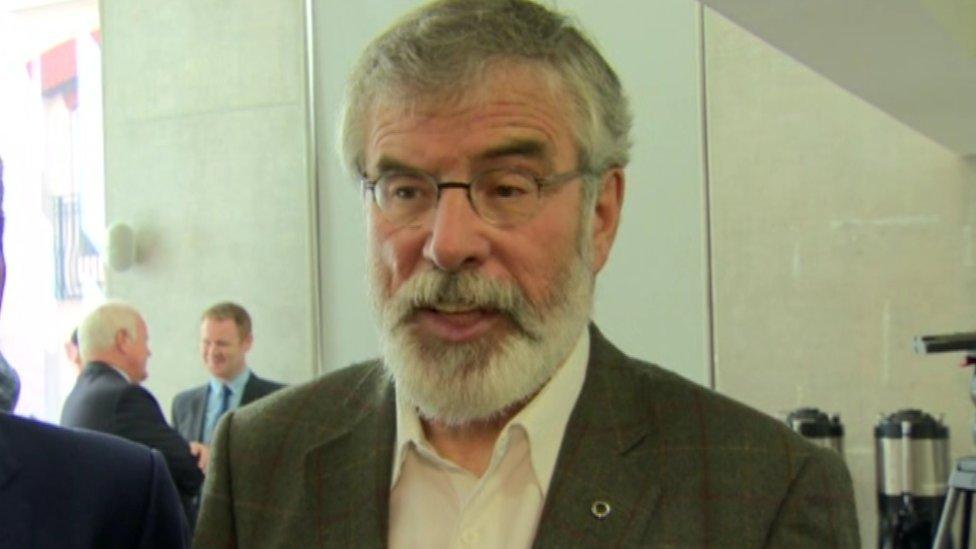
- Published30 November 2018
